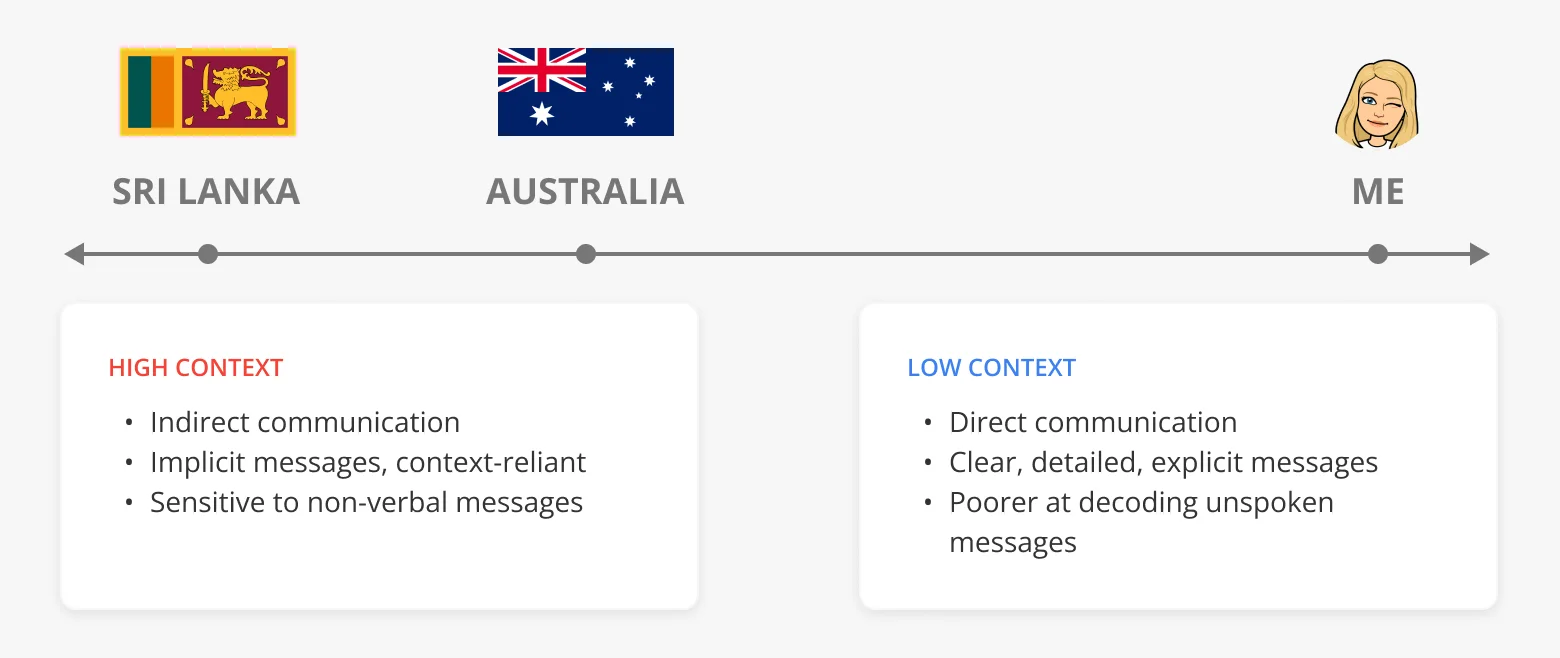Clash of the cultures
Working with a remote team? From a different culture? That has different values and ways of working? Not just different, but opposite? Yes, I made it work.
Short and sweet direct
I learned to be direct from an early age. In my culture, nobody hesitates to correct others, and criticism is delivered quite honestly. People usually speak to the point and keep their words concise. This style of communication can seem blunt, even when that's not intended. I never saw a problem with that since everyone around me communicated this way.
When I immigrated to Australia, I learned that people there were reserved, indirect, and conflict-averse. It took me a long time to find a balance between being honest and being blunt, between being concise and abrasive, expressing my opinion, but also considering others' perspectives.
I didn't expect changing my communication style to be such a big part of adapting to my new country. Even more so, I didn’t anticipate facing a whole new communication challenge when I started working with a remote team from South Asia.
Working with a remote team
Before I worked at SkoolBag, I didn’t have any experience with Sri Lankan culture, but I quickly realized they were very kind and sweet people, quiet, and respectful.
However, over time, I started noticing that developers rarely contributed their ideas and seemed to only want me to give them directions.
During the feature kick-off, no one would share their thoughts. By the time the feature was completed, the implementation looked very different from the original design, leaving me puzzled about what I might have missed.
When the time came for my annual review, one of the peer feedback was about improving my communication. I was so confused, no one had mentioned this to me throughout the year.
High and low context cultures
To investigate the issue further, I spoke with the Sri Lankan team lead. He introduced me to the concept of "high context" and “low context” cultures.
High context is characterized by a courteous and indirect speech style. In such cultures, people often prefer to insinuate rather than be explicit. Sri Lankans avoid saying "No" or providing negative feedback, even when they disagree, as it is considered rude. He also explained that there is a strong respect for seniority in Sri Lanka, and it is customary for more junior colleagues to stay quiet in group discussions.
My “low context” culture was on the opposite end of the spectrum, where I was outspoken and words carried most of the meaning.

Build a productive culture
To create a great product, we first needed to build a productive company culture. This culture had to be based on contribution and collaboration, with each team member doing their part to develop it.
Everyone took steps towards building this culture:
- We gave developers the power to control their work. They were responsible for breaking the epic into releases, breaking the stories, and setting deadlines for themselves.
- For every retrospective, we had a new team member facilitating. That put them in the role of the leader and got them used to speaking up.
- I added a design review, where developers could contribute while the work was still in progress. Colleagues were much more willing to give feedback on something that didn’t look finished yet.
- I built personal relationships with developers: we had game nights, trivia, and poker nights. For every birthday we all sang "Happy Birthday" together via Zoom. We also shared more personal life details with each other.
- If I saw something not working - I would have a one-on-one conversation with a person and focus on listening and understanding the problem.
- Positive reinforcement was very important. I would always consider their design input. Often I would change the design based on the dev feedback and give them a shout-out for the input.
- Instead of focusing on the words a person was saying, I became more aware of what they were not saying: long pauses and avoidance of eye contact would indicate they had a problem with my proposal.
- My design process has changed to make it work for us. I myself became softer and less direct.
Culture was changing
All those ideas really helped to build such relationships, where sometimes I would get messages from developers out of nowhere suggesting a feature for the product they were not even working on.
Company culture is a process of accepting and understanding all the individual cultures in the team. Your company culture is unique and it takes time to build.
